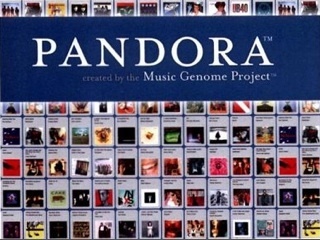 According to Apple store downloads, your favorite music app is probably Pandora. Ironically, that’s also a darling of the music labels. Apparently the War-that-Napster-Started between consumers and the industry over a decade ago is nearing a truce.
According to Apple store downloads, your favorite music app is probably Pandora. Ironically, that’s also a darling of the music labels. Apparently the War-that-Napster-Started between consumers and the industry over a decade ago is nearing a truce.
Yesterday, CNET’s Greg Sandoval noted that Pandora’s model is doing more than any-song-on-demand services like Spotify to drive sales:
Russ Crupnick, an analyst with market researcher NPD Group, told a crowd of music and tech executives here Wednesday that free streaming-music sites, which enable people to listen to any song at any time free of charge, lead to a 13 percent decrease in paid downloads.
Speaking at the Digital Music Forum East conference, Crupnick sized up the situation this way: “We’re eating our young. For some people, more listening just means more listening and tends to lead to less purchasing.”By contrast, online radio services lead to a 41 percent increase in paid downloads, Crupnick said.
I checked in with Pandora founder Tim Westergren to see if he had any data to corroborate the idea that services like his are good for the labels. He said their internal data is almost identical to NPD’s 41% figure, and that the figure makes sense since discovery is the engine for sales.
“We’re currently selling about $10 million of music DIRECTLY through the links on our site.” Wesstergren said. “Since we are only 1% of all radio listening in the US, that equates to $1 billion of music sales if all of US radio had the same impact as we.”
“Moreover, our research shows that the music purchased using our direct links is only a third of the total music purchased by our users.”
Pandora was also profitable in Q4, and has managed to avoid the fate of services that let users listen to any song on-demand. SpiralFrog and Ruckus fall into that category and they shut down last year. Imeem sold itself to MySpace for next to nothing.
Pandora was founded in 2000 and has received $56.3 million in venture funding.
















